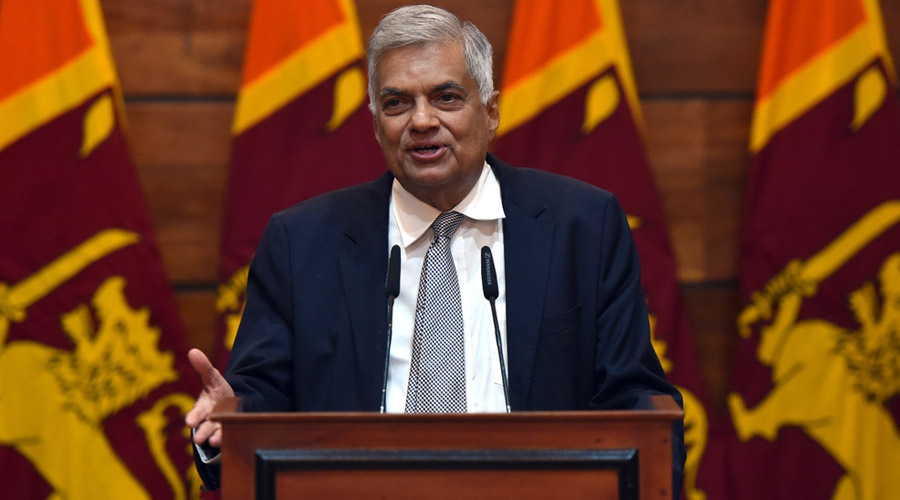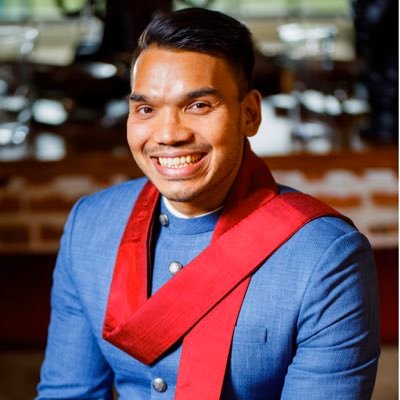
As we approach Sri Lanka’s presidential election on 21 September, Tamil Guardian takes a closer look at the leading candidates ahead of Saturday's polls.
As we approach Sri Lanka’s presidential election on 21 September, Tamil Guardian takes a closer look at the leading candidates ahead of Saturday's polls.
Ranil Wickremesinghe

Ranil Wickremesinghe, Sri Lanka’s current President and leader of the United National Party, has served as Prime Minister from 1993 to 1994, 2001 to 2004, 2015 to 2015, 2015 to 2018, and 2018 to 2019. In the midst of the Aragayala protests of 2022, which saw the ousting of Gotabaya Rajapaksa, he was appointed Prime Minister and subsequent to Gotabaya Rajapaksa’s resignation, he assumed the presidency, despite holding but a single seat in Sri Lanka’s parliament.
As President, Ranil Wickremesinghe has been slammed by human rights critics who have noted a host of repressive legislations that he sought to implement to silence dissent as well as the crackdown on protests and memorialisations.
Read more about Wickremesinghe - Who is Ranil Wickremesinghe?
Sajith Premadasa
![]()
Sajith Premadasa, whose father Ranasinghe Premadasa had previously served as head of the United National Party (UNP) and had served in the roles of president and prime minister, is the leader of the Samagi Jana Balawegaya (SJB). The SJB is itself a breakaway group from the UNP which formed to contest the 2020 Sri Lankan parliamentary elections separately.The decision to form a splinter organisation and separate itself from the UNP enabled the organisation to avoid the UNP’s dire fate as the 2020 elections saw the UNP only garner a single seat via the national list.
Premadasa too has repeatedly burnished his Sinhala Buddhist credentials and openly welcomed accused Sri Lankan war criminals into his party.
Read more about Premadasa - Who is Sajith Premadasa?
Anura Kumara Dissanayke
![]()
Dissanayake, the Marxist Janatha Vimukthi Peramuna (JVP) and National People’s Power (NPP) candidate, entered parliament in 2000, via the nationalist list system. Whilst initially supportive of the-then Kumaratunga administration, the JVP aligned with hardline Sinhala nationalists in opposition to the 2002 peace negotiations with LTTE.
In 2004 the party rose to prominence by campaigning explicitly on an anti-ceasefire platform and forming an alliance, known as the United People’s Freedom Alliance (UPFA), with Mahinda Rajapaksa. Dissanayake has recently spoken out on how his party would continue to oppose prosecutions of those accused of war crimes.
Read more about Dissanayke - Who is Anura Kumara Dissanayke?
Namal Rajapaksa

Namal Rajapaksa, son of accused war criminal Mahinda Rajapaksa and former Sports Minister, is the presidential candidate for the Sri Lanka Podujana Peramuna (SLPP). The SLPP is itself a party split from the Sri Lanka Freedom Party (SLFP); divorcing itself from the SLFP in 2016, which was then under the stewardship of Maithripala Sirisena.
The party formed an effective opposition to the Sirisena administration and espoused a hardline Sinhala nationalist viewpoint opposed to concessions to the island's minorities. In 2019, the SLPP successfully campaigned on a message of Sinhala nationalism and enabled Gotabaya Rajapaksa to claim the presidency however years of economic mismanagement, corruption and nepotism, led to popular protests that saw the Rajapaksa’s removed from office.
Read more about Namal Rajapaksa - Who is Namal Rajapaksa?
Pakkiyaselvam Ariyanenthiran
Ariyanenthiran, who had previously served as a Tamil National Alliance (TNA) MP for Batticaloa between 2004 and 2015, launched his campaign, not with hopes of wining the polls, but of sending a message to the international community regarding Tamil aspirations on the island.
His candidacy has been backed by a range of Tamil political parties and civil society organisations
Read more about Ariyanethiran - Who is the Tamil common candidate Pakkiyaselvam Ariyanenthiran ?

.JPG)